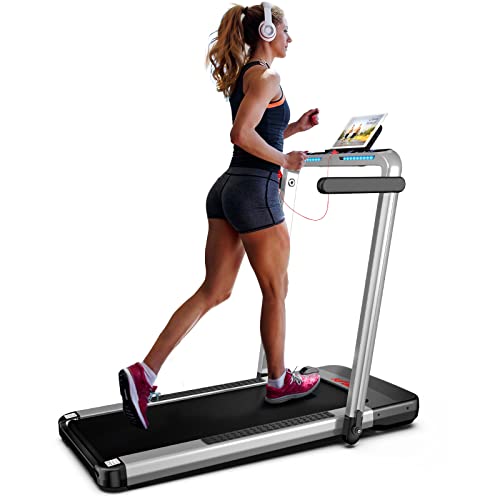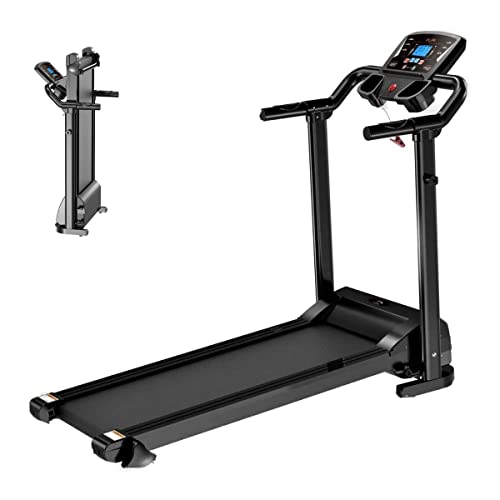Understanding Treadmills: Types, Benefits, and Considerations
Treadmills have ended up being an integral part of physical fitness culture, providing a practical option for individuals seeking to enhance their cardiovascular physical fitness without the requirement for outdoor spaces or weather factors to consider. With a variety of features and models offered, possible buyers should be well-informed to make the best choice. This article intends to provide a detailed summary of treadmills, consisting of the various types, benefits, and aspects to consider when buying one.
The Different Types of Treadmills
1. Handbook Treadmills
Manual treadmills are powered by the user instead of an electric motor. They need no electrical energy and normally include a simple design with fewer moving parts.
Benefits of Manual Treadmills:
- Cost-effective
- Portable and lightweight
- No reliance on electricity
Drawbacks:
- Limited features
- Normally lack incline options
2. Motorized Treadmills
Motorized treadmills are the most typical type, powered by an electric motor. They generally offer various functions such as programmable exercise regimens, adjustable slopes, and greater weight capabilities.
Benefits of Motorized Treadmills:
- Smooth operation and constant traction
- Flexible with advanced features for diverse workouts
- Options for slope and decline settings
Disadvantages:
- Higher expense compared to manual treadmills
- Need electrical power and might increase electric costs
3. Folding Treadmills
Folding treadmills are created for easy storage, making them perfect for those with minimal area.
Benefits of Folding Treadmills:
- Space-saving design
- Easy to carry and save
- Appropriate for home use where space is at a premium
Downsides:
- Typically might have a smaller running surface
- Weight limit might be lower than non-folding designs
4. Business Treadmills
These treadmills are built for sturdiness and efficiency, generally found in gyms and fitness centers. They are developed for high use rates and come with advanced features.

Benefits of Commercial Treadmills:
- Extremely long lasting and frequently supported by service warranties
- Complete series of features, including sophisticated training programs
- Appropriate for durable workouts
Drawbacks:
- Higher cost point
- May be too big or heavy for home usage
| Type of Treadmill | Source of power | Normal Features | Ideal For |
|---|---|---|---|
| Handbook Treadmill | None | Basic exercise metrics | Minimalist users |
| Motorized Treadmill | Electric | Programmable exercises, incline alternatives | General physical fitness lovers |
| Folding Treadmill | Electric | Space-saving design | Home users with minimal area |
| Business Treadmill | Electric | Advanced training programs | Gym centers |
Benefits of Using a Treadmill
Treadmills offer various advantages for people wanting to improve their fitness levels or keep an athletic regimen.
1. Convenience
Owning a treadmill allows users to exercise at their own schedule, eliminating dependence on climate condition. It offers versatility, as workouts can take place day or night.
2. Customizable Workouts
Numerous modern-day treadmills feature customizable programs to accommodate newbies and seasoned athletes. Users can change speed, incline, and workout duration to optimize the effectiveness of their sessions.
3. Tracking Progress
Most treadmills come geared up with digital displays that tape important statistics such as distance, speed, calories burned, and heart rate. Monitoring this information helps users track their fitness development with time.
4. Minimized Impact
Treadmills frequently supply a cushioned surface that can reduce joint effect compared to working on hard outside surfaces, making them an ideal choice for individuals with joint concerns or those recuperating from injuries.

5. Variety of Workouts
Users can participate in numerous exercises on a treadmill, from walking and running to interval training and speed work. Some machines even use built-in courses that simulate outdoor terrains.
Considerations When Buying a Treadmill
When buying a treadmill, individuals ought to think about a number of aspects to ensure they make an informed decision.
1. Area Requirements
- Step Available Space: Before selecting a design, step where the treadmill will be positioned to guarantee it fits conveniently.
- Think About Folding Options: If space is an issue, consider purchasing a folding treadmill for practical storage.
2. User Weight and Height
- Inspect the weight capacity of the treadmill to accommodate its intended users.
- Ensure that the belt length is appropriate for users' strides, especially for taller people.
3. Functions and Technology
- Examine whether innovative features like heart rate screens, Bluetooth connection, and integrated training programs are essential for the designated user.
- Investigate user-friendly interfaces and item reviews on display quality.
4. Warranty and Customer Support
- Evaluation guarantee options to understand what is covered and for for how long. Some models might provide extended guarantees or assurances for parts.
- Examine the brand name's credibility for client support in case of malfunctions or questions.
5. Rate Range
- Consider your budget but keep in mind that cheaper models may do not have features, durability, or warranty assistance.
- Check out financing options if purchasing a higher-end design.
FAQs About Treadmills
1. What is the average life expectancy of a treadmill?
Normally, a high-quality treadmill can last between 7 to 12 years, depending on use, maintenance, and build quality.
2. What is the very best treadmill brand?
Popular brands include NordicTrack, Sole Fitness, Precor, and LifeSpan, each understood for their quality and client satisfaction.
3. Can I use a treadmill for walking?
Yes, treadmills are perfect for walking, running, or running, making them versatile for users of all physical fitness levels.
4. How often should I service my treadmill?
Regular upkeep is usually advised every 6 months to make sure optimal performance and durability.
5. Is it all right to work on a treadmill Price (stafftraining.Flagshiplms.com) every day?
While running on a treadmill daily is acceptable for some, it's smart to include rest days or alternate workouts to prevent prospective overuse injuries.
In conclusion, treadmills stay a popular option for physical fitness enthusiasts searching for flexibility and customizability in their exercise routines. By understanding the various types readily available, their advantages, and key elements to consider throughout purchase, users can make an educated decision that aligns with their physical fitness goals and way of lives.














